The Trains Interview with Metrolink CEO Stephanie Wiggins in the June 2019 issue is, unavoidably, significantly abridged from the conversation in February at Metrolink’s headquarters in downtown Los Angeles. The full transcript of the hour-long interview was 8,900 words; the portion that appears in print is 630 words.
There’s certainly more of the interview worth sharing. So here’s the first of two parts of additional highlights from Wiggins’ conversation with Trains Associate Editor David Lassen. (Part 2 is available here.). As in print, questions and answers have been edited for length and clarity.
We begin this segment talking about an impressive letter of introduction Wiggins sent to Metrolink employees when she arrived as CEO in January, which sparked Trains’ interest in scheduling the interview with Wiggins. (You can read that letter here.)
Q: [The letter] made a big impression on a lot of people. It did a great job of laying out, “Here’s what you can expect from me, and here’s what I can expect from you” with a clarity we don’t often see in those sorts of messages. What led to that letter, and what was the reaction to it?
A: What led to that letter, honestly, is that I’ve been on a receiving end of a letter like that, as an employee having to deal with the anxiety of a new CEO coming on board, and not knowing what to expect. There’s so much anxiety when there’s that type of huge change at the top of an organization. The CEO [LA Metro’s Phil Washington, Wiggins’ boss before she came to Metrolink] sent his welcome letter, his expectations letter, and I fell out of my chair, because I thought it was so powerful and empowering at the same time. … I said to myself, “If I ever become fortunate to lead an organization, I want to do something like that.”
I did get a couple of emails back from employees who were really excited. I think also, to be expected, some employees were like, “Oh, okay, we’ll see.” But what I love about it is [that] it has so far been a tool that my supervisors can use with their staff, to help clarify expectations, to help identify priorities.
I really believe in this tenet, that culture will eat strategy for breakfast and lunch. It doesn’t matter how good the strategy is, if you don’t address culture, you’re going to have a difficult role. For me, starting with the welcome letter day one is about setting a tone of the type of culture that I want here, to be able to realize a vision. That starts with the employees, and that starts with clarity.
Q: In that letter, you mentioned having fun … and maintaining a sense of humor, which are things I don’t think we often hear from CEOs. Why were those important to you, and how do you try to keep those aspects alive?
A: Well, having fun has to be foundational as well in the workplace. When you think about how much time people are spending at work versus at home, you spend most of your day at work. You want it to be an enjoyable place that you look forward to showing up to, right? Part of that is [having] fun. … I need that culture here, because I believe that directly translates to providing an outstanding customer experience. If you are engaged, having fun, feel respected, empowered, then you’re going to make better decisions that impact our customers. …
You need a sense of humor in this work. [It] helps put things in perspective. It recognizes that we’re all human, right?
Q: You have experience with congesting pricing. [At LA Metro, Wiggins led the effort to add toll lanes on the 110 Freeway, which added 11 miles of variable-pricing lanes south of downtown.] There’s discussion of a more extensive congestion pricing program now for LA freeways, which would be obviously transformational for, as you say, a car-centric culture. I know there’s a lot of steps before that happens, but how do you approach that possibility? How do you prepare for the eventuality of a greater congestion-pricing program?
A: Well, a couple of ways. First, from a policy perspective, to just be part of the conversation, as Metro takes on this big topic. Metro formed, a couple of years ago, a policy advisory council, which includes a wide variety of stakeholders, to help inform them on major policy issues related to Measure M and the long-range transportation plan. … One of my staff members is in the leadership on that PAC, and we engaged with the PAC last week to talk about ensuring that Metrolink has a seat at the table, as Metro considers moving forward.
When you do congestion pricing, you need to have a choice that doesn’t require you to drive or pay a toll. That’s not just limited to Metro modes, but includes Metrolink and other transit operators.
Secondly, the key part of being prepared for congestion pricing … is looking at our infrastructure and the capacity to accommodate the additional service that would be needed to address the demand on a full congestion pricing scheme. Fortunately what we have in that vein is our SCORE program.
Our SCORE program [Southern California Optimized Rail Expansion; more details are available here] is a $10-billion capital investment program that looks at our entire system, and identifies infrastructure improvements that will help facilitate 60-minute headways, 30-minute headways, and eventually 15-minute headways on the various corridors. … It was developed as our answer for being prepared for the Olympics in 2028.






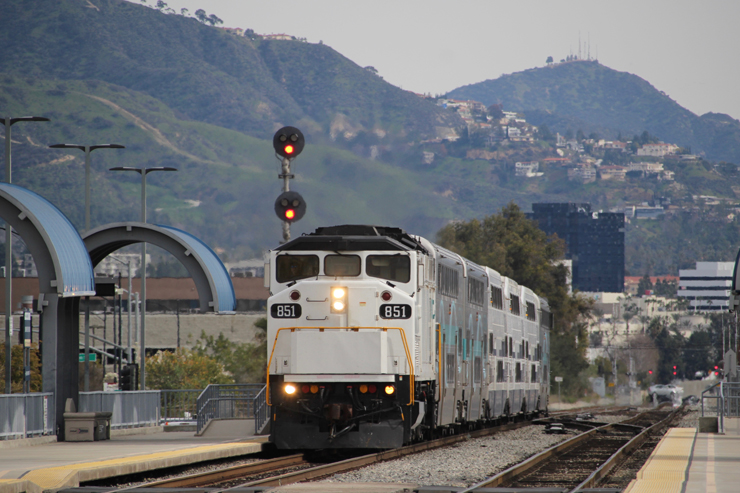

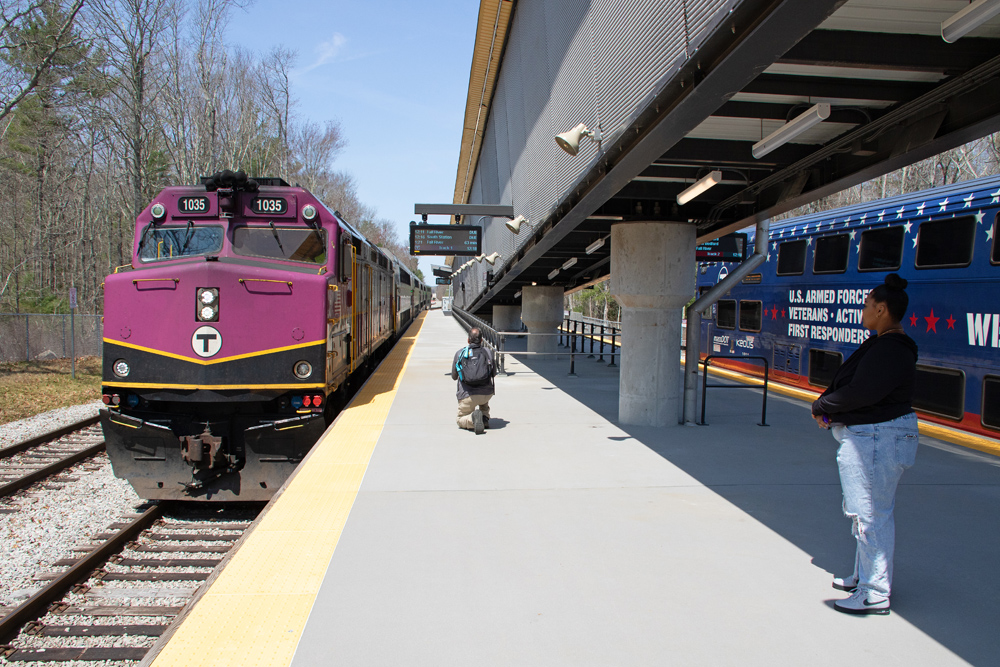
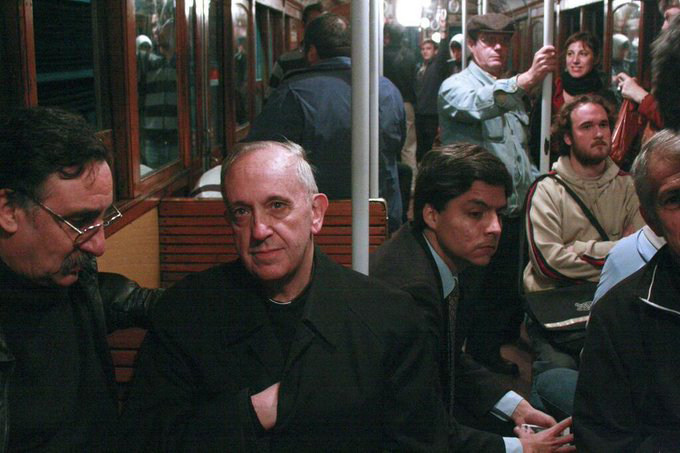
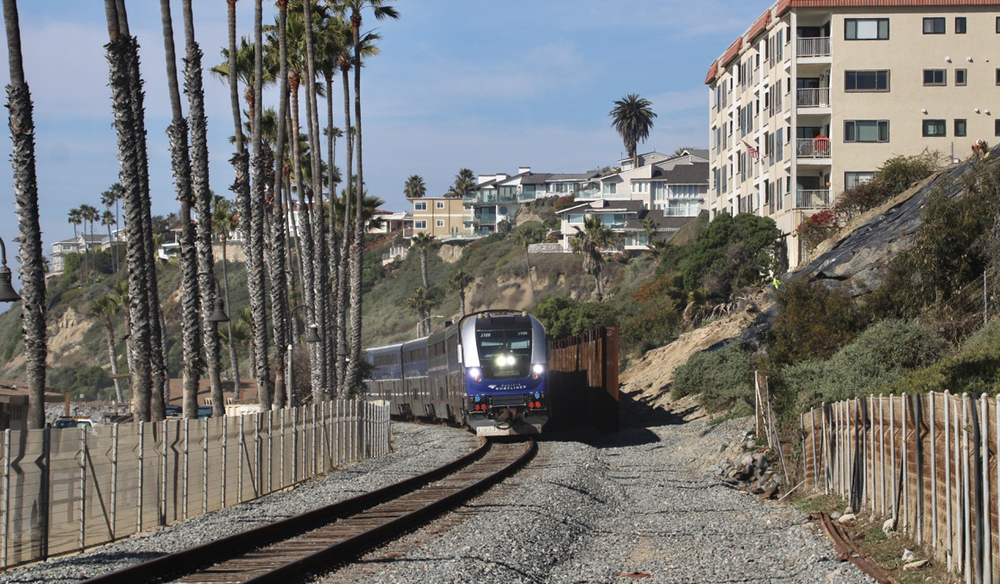
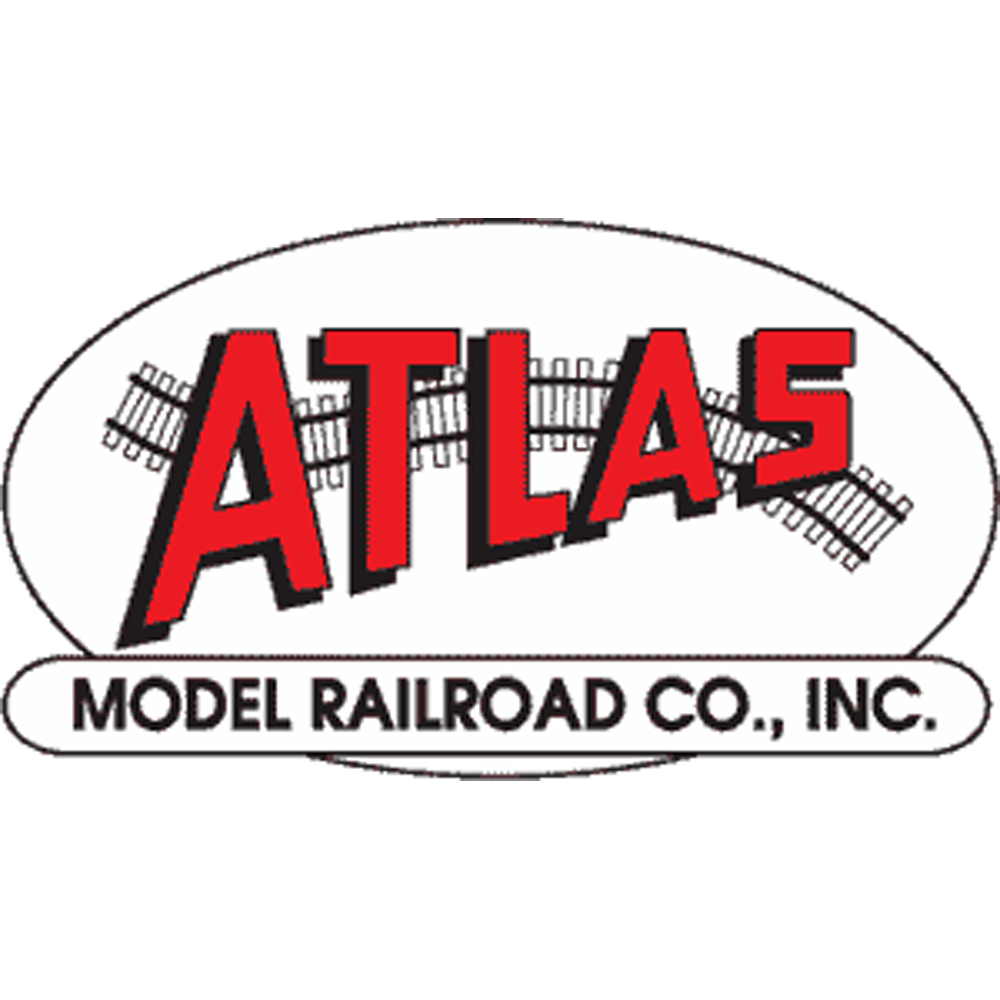




I missed reading this first part of the interview. Al and Charles, I agree with you wholeheartedly. What a gracious, heartfelt letter. Don’t we all wish EVERY CEO in EVERY company would pass something like this along to their hard-working people?! We can only dream…
What employees are they referring to? Amtrak operates those trains, correct?
Al,
Here’s how Anderson could write the letter. It’s all in Fred Frailey’s great book. Look it up. He just needs to “take a page” from the late Graham Claytor.
No not the wonderful Graham Claytor, Amtrak’s fine leader.
No, not the accomplished CEO at Southern Railway, nor the distinguished naval officer nor the capable holder of two high positions in the government.
None of those Graham Claytors. The Graham Claytor he needs to emulate is this one: the 1950’s legal chief at Southern Railway who devised the sneaky and corrupt gambit to empty out Southern passenger trains down to the seat fabric. So Southern could then go to ICC and say, No one is riding the train so we will discontinue it.
Here’s how the letter will go: Dear Amtrak Employees: I am so, so, so very very sorry you need to come to work. I’m developing a strategy to see to it that you won’t have to, ever again. Love and kisses, Richard. PS You can kiss my balding forehead on the bronze plaque memorializing me at Detroit Metro Airport’s former Northwest, now Delta, terminal.
Wouldn’t it be nice to see a similar letter from Anderson to his employees and peer group??